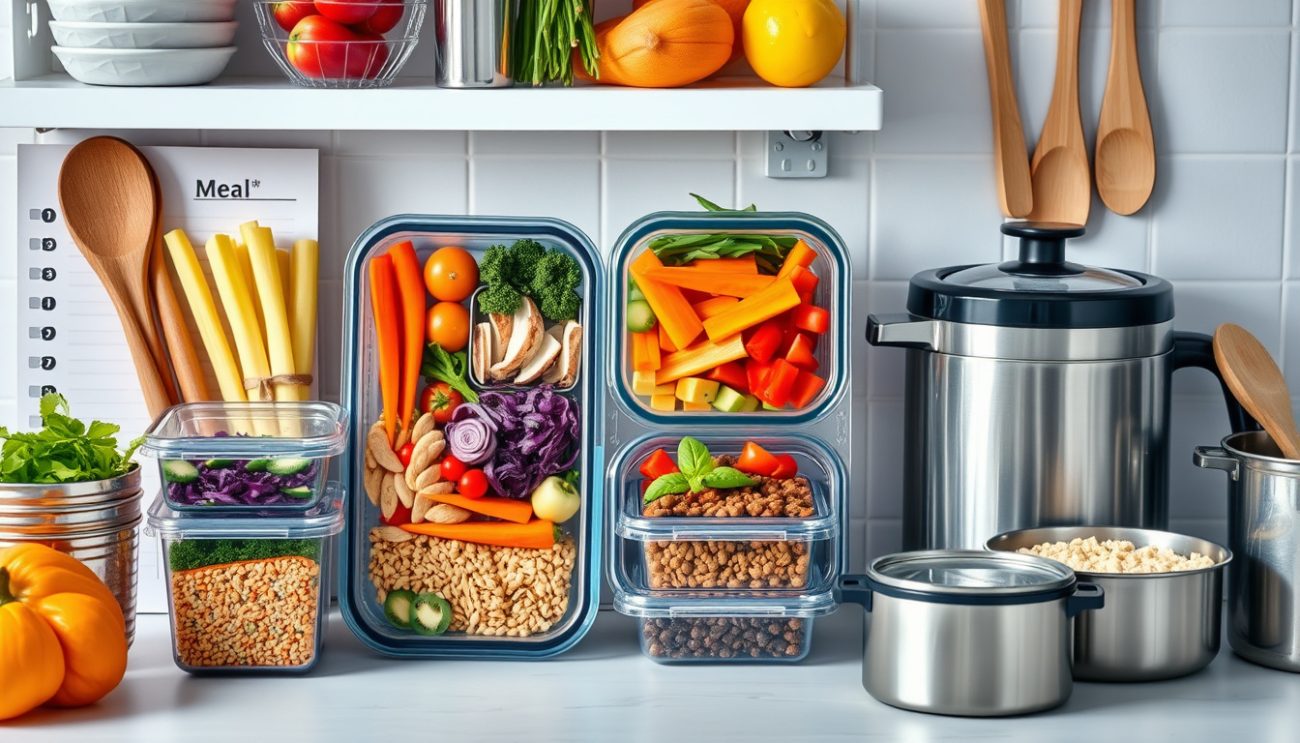Master the Art of Meal Prepping: Simplify Your Week and Elevate Your Health!
Meal prepping has become a popular strategy for busy individuals aiming to save time, eat healthier, and manage their food budget more effectively. By preparing meals or meal components in advance, you can reduce daily

Meal prepping has become a popular strategy for busy individuals aiming to save time, eat healthier, and manage their food budget more effectively. By preparing meals or meal components in advance, you can reduce daily cooking stress, avoid unhealthy last-minute food choices, and enjoy homemade dishes throughout the week. If you are looking to adopt meal prepping but aren’t sure where to start, this comprehensive guide will walk you through everything you need to know to master this valuable skill.

What is Meal Prepping?
Simply put, meal prepping involves planning, preparing, and portioning meals or ingredients ahead of time for future consumption. This can mean cooking full meals and dividing them into containers or prepping components such as chopped vegetables, cooked grains, or proteins separately to mix and match later.
The scope of meal prepping ranges from packing leftover dinners into lunch containers to batch-cooking 3 to 7 days’ worth of meals at once. Some even go further by freezing meals to last for weeks. Meal prep can target any meal of the day — breakfast, lunch, dinner — or snacks.
Why Meal Prep?
Benefits:
- Time-saving: Reduces daily cooking and cleaning time.
- Cost-effective: Limits eating out or ordering takeout, which often costs more.
- Healthier eating: Greater control over ingredients and portion sizes.
- Waste reduction: Helps use up perishables efficiently.
- Convenience: Quick grab-and-go meals eliminate decision fatigue during busy days.
Meal prepping is especially useful for those who prioritize convenience and efficiency and can handle eating variations of the same meal multiple days in a row.
Who Is Meal Prepping For?
Meal prepping works best for:
- People with busy schedules, such as students and working professionals.
- Those focused on health and fitness who want consistent control over their diet.
- Budget-conscious individuals aiming to reduce food waste and avoid impulse purchases.
- Anyone seeking stress-free meals without daily cooking.
However, if you prefer maximum variety daily or dislike leftovers, meal prepping might feel restrictive. Also, meal prepping for multiple family members with different tastes can be complicated due to quantity and ingredient preferences.
What Foods Work Well for Meal Prepping?
Great for Meal Prep:
- Cooked grains and pasta: Rice, quinoa, couscous.
- Cooked proteins: Chicken, ground meat, beans, tofu.
- Roasted or steamed vegetables: Carrots, broccoli, kale, bell peppers.
- Hearty raw vegetables: Celery, carrots, peas.
- Sauces and dressings: Stored separately to keep meals fresh.
- Whole fruits: Apples, oranges, stone fruits.
- Snacks: Nuts, seeds, cheese.
Foods to Avoid or Handle with Care:
- Delicate leafy greens (lettuce) or soft fruits (berries) tend to wilt quickly.
- Crispy/fried items lose texture when stored.
- Foods that brown easily (apples, bananas) if not pretreated or stored separately.
Pro tip: Pack sensitive items separately or add fresh just before eating to maintain texture and flavor.
How Long Can You Store Prepped Meals?
Food safety and quality depend on storage conditions:
- Refrigeration: Most meals keep well up to 3-4 days. Some home meal preppers extend this to 5 days but always watch for signs of spoilage.
- Freezing: Extends shelf life to weeks or months for many dishes like soups, casseroles, and baked goods.
Start conservative—prepare enough for a few days and freeze extras for longer storage. Use airtight containers designed for freezing and reheating to maintain quality.
Container Essentials
Having the right containers makes all the difference in meal prepping:
- Reusable plastic containers: Lightweight, inexpensive, microwave-safe (ensure BPA-free).
- Glass containers: Great for microwave and dishwasher use; more durable and eco-friendly.
- Divided containers: Separate compartments help keep components fresh if you prefer assembling meals later.
- Small containers: Ideal for sauces, dressings, or snacks.
How to Start Meal Prepping: Step-by-Step
1. Start Small
Try packing leftovers from one dinner to eat the next day for lunch. This helps you understand what you like as leftovers and how long certain foods stay fresh.
2. Choose Simple Meals
Begin with single-dish meals that combine protein, grain, and vegetables. This minimizes cooking steps and makes portions straightforward.
3. Gradually Expand
Once comfortable, prep multiple meals or meals for breakfast and lunch. Experiment with prepping meal components separately to build variety.
4. Use Meal Prep Formulas
Some handy meal formulas to guide your choices:
- Basic: Protein + Grain + Vegetable
- Low-Carb: Protein + Two Vegetables
- Vegetarian: Legume + Grain + Vegetable
Add toppings like nuts, seeds, or sauces to keep meals interesting.
Healthy Meal Prep Ideas
Breakfast
- Overnight oats with fruit and nuts
- Hard-boiled eggs ready to grab
- Veggie-packed egg muffins
- Chia seed pudding with toppings
- Homemade granola with yogurt
Lunch and Dinner
- Grain bowls with quinoa, roasted veggies, and protein
- Hearty salads like kale or Mediterranean chickpea salad (dress just before eating)
- One-pot meals such as vegetarian chili or lentil soups
- Sheet pan roasted meats and vegetables
- Freezer-friendly casseroles like baked ziti or lasagna
Snacks
- Pre-portioned nuts or trail mix
- Cut vegetables with hummus
- Homemade oatmeal cookies or granola bars
Tips for Success
- Plan your menu: Choose recipes you enjoy and that store well.
- Batch cook: Maximize time by cooking multiple servings simultaneously.
- Label containers: Date your meals to keep track of freshness.
- Mix fresh and prepped: Incorporate some fresh elements daily to keep meals vibrant.
- Use your freezer: Freeze extra portions in individual containers to avoid waste.
- Prep ingredients: If full meals seem daunting at first, prep parts (chopped veggies, cooked grains) to combine quickly when needed.
Final Thoughts
Mastering meal prepping takes time, experimentation, and tailoring to your tastes and schedule. Starting small and building up gradually prevents overwhelm and food waste. With the right tools, planning, and a focus on balanced meals, meal prepping can become your go-to strategy for simplifying your week while supporting your health goals. Embrace the process and enjoy the rewards of stress-free, nourishing, homemade meals any day of the week!
References & Resources
- Budget Bytes: Meal Prep 101 – Beginner’s guide focusing on simplicity and budget.
- Love and Lemons: 60 Healthy Meal Prep Ideas – Recipes and tips for a variety of meal prep styles.
- Reddit r/EatCheapAndHealthy – Community insights and extensive meal prep tips from real users.
Happy prepping, and here’s to a healthier, simpler week ahead!



